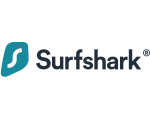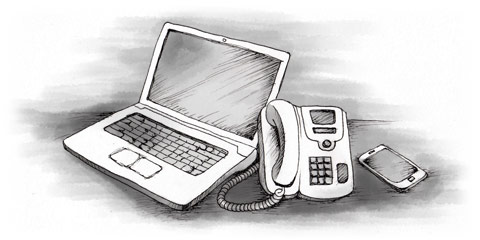When making a phone call, don't expect a happy " Guten morgen" from the other end of the line. Germans usually say their last name when picking up the phone. When calling, they identify themselves first before asking to be connected, so unless you want to appear pushy or rude, you should do likewise.
In some cases, you will be confronted by a recorded message when making a call. Below is a list of the messages that you're most likely to hear:
- Kein Anschluss unter dieser Nummber = This number is unavailable
- Dieser Anschluss ist vorübergehend nicht erreichbar = This number is temporarily unobtainable
- Diese Rufnummer hat sich geändert = This number has been changed
- Bitte warten Sie, sie werden in Kürze verbunden = Please wait, you will be connected shortly
- Bitte versuchen Sie es später noch einmal = Please try again later
Calling prefixes
For many foreigners, dialing in Germany can be confusing:
- To call a local number within your own area, dial the number only.
- To call to another area, dial the respective area code first. When calling from within Germany, you have to dial "0" followed by the area code (i.e. 089 for Munich). Area codes and phone numbers in Germany are variable length: the bigger the city, the shorter the area code, so that 089 is Munich, but 07252 will be a smaller town. A list of area calls can be found in any phone directory .
- To call from abroad to a number in Germany, dial your international access number (usually 00), followed by the country code of Germany and then the area code without the 0 (i.e. 0049-89 for Munich)
- To call abroad, dial 00 before the country code.
Note that there is no standard for writing phone numbers in Germany. Some typical ways of writing a number include:
- +49 - 89 - 343 80 - 14
- +49 (89) 343 80 - 14
- 0049 (0) 89 343 80 - 14
- (089) 343 80 - 14
- 089 / 343 80 - 14
- 089 343 80 14
The dash (-) often separates a main phone number from an extension. If you don't get connected to this extension, you might be able to reach the switchboard by replacing the extension number with a 0.
There is also a confusing variety of special code prefixes in Germany. Some of these prefixes can bear extremely high calling costs (up to €5/minute!), so you should be careful when dialing them. Below are some of the most important prefixes:
0190 or 0900: These numbers are used for premium calls (with premium rates!) and are often operated for "erotic entertainment", but also include many customer hotlines. The cost of a call depend upon the extension (Mar 2004): from 0190-1.. = €0,62/minute to 0190-8.. = €1,86/minute. Numbers starting with 0190-0.. or 0900.. can charge any tariff so call with care!
0180: the person calling and the owner of the number share the cost of the call. Calls to these numbers are less expensive than 0190 numbers and cost up to €0,24/minute (Mar 2004).
0800: These are free phone numbers with no cost to call.
0137: These numbers are used for telephone votes (i.e. for TV shows). Prices are not as expensive as for 0190 numbers.
016.. or 017..: These are the prefixes of mobile phone operators. Calls from a fixed phone to a mobile are expensive in Germany, so consider using call-by-call (see below) or a prepaid phone card.
There is a wide range of other special prefixes (for example, government institutions based in Bonn and Berlin have a special prefix covering both locations). As the telecom market in Germany rapidly changes, new prefixes appear quickly and old ones disappear.


